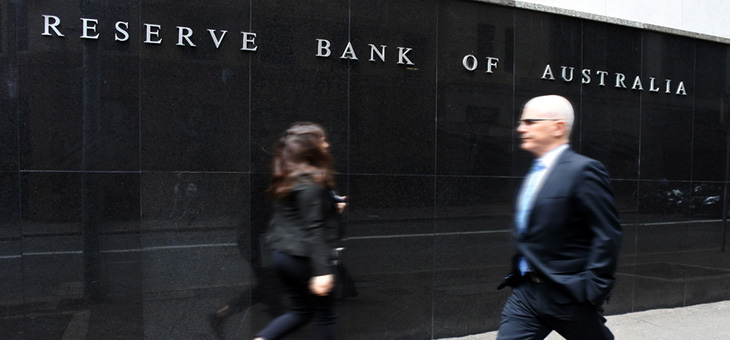The Reserve Bank of Australia (RBA) has kept the official cash rate on hold, but experts are still predicting further action once the economic impact of consecutive cuts in June and July are determined
Yesterday’s decision to hold rates was widely expected, but economists say as many as two more cuts are likely, starting in October or November.
“The persistent downside risks to the global economy combined with subdued inflation have led a number of central banks to reduce interest rates this year and further monetary easing is widely expected,” said RBA governor Philip Lowe.
“Long-term government bond yields have declined further and are at record lows in many countries, including Australia. Borrowing rates for both businesses and households are also at historically low levels. The Australian dollar is at its lowest level of recent times.”
Mr Lowe said an extended period of low interest rates would be needed to reduce unemployment and “achieve more assured progress towards the inflation target”.
“The board will continue to monitor developments in the labour market closely and ease monetary policy further if needed to support sustainable growth in the economy and the achievement of the inflation target over time,” he said.
On Monday, former prime minister John Howard said he was concerned that the RBA cuts had gone “too far” already, leaving Australia vulnerable to another global crash.
While most believed that rates would hold yesterday, 49 per cent of 46 economists and money experts surveyed by comparison website Finder have tipped a final low of 0.5 per cent and 35 per cent believe the cash rate will bottom out at 0.75 per cent.
“Governor Lowe has placed the RBA in a difficult position by emphasising the view that the unemployment rate must hit 4.5 per cent before sustained wage growth can be achieved. This sets up another RBA rate cut before year end,” said Queensland Investment Corporation (QIC) chief economist Matthew Peter.
After the July cuts, Mr Lowe said the RBA would adjust again “if needed”, inferring that the central bank would be keeping a close eye on the impact of each cut.
“The RBA has indicated its willingness to cut further …” said Associate Professor in economics at Melbourne Business School, Mark Crosby.
When the next cut occurs could become clearer this week once the RBA announces its revised forecasts and the Australian Bureau of Statistics (ABS) releases its June lending data.
The ABS data should reveal whether the first of the RBA’s two 0.25 percentage point cuts had any stimulating effect on key economic areas, including housing and employment.
“The RBA is waiting to see the impact of its June and July rate cuts and the Federal Government’s tax cuts for low and middle income earners and, in particular, it wants to see lower unemployment,” said AMP Capital chief economist Dr Shane Oliver.
While the effects of the rate hold on the economy, employment and housing sectors seems to be the focus, the pause on reducing rates further will give brief relief to retirees relying on income derived from interest rates. However, it seems the effect on retirees is of little concern to most.
“The elephant in the room is the impact rate cuts are having on wealth inequality, specifically with regard to retirees who have seen their standard of living decline along with the earnings from their savings accounts,” said finance expert Peter Boehm.
“At some point, their interests will need to be given more priority when considering rate reductions. I can’t see further rate reductions on their own providing the necessary stimulus to the economy; government spending initiatives must now take on a more predominant role.”
Were you surprised that the rates held yesterday? What will a drop to 0.5 per cent mean to you?
If you enjoy our content, don’t keep it to yourself. Share our free eNews with your friends and encourage them to sign up.
Related articles:
More bad news for retirees
Rate cut too little too late
Government needs to step up

